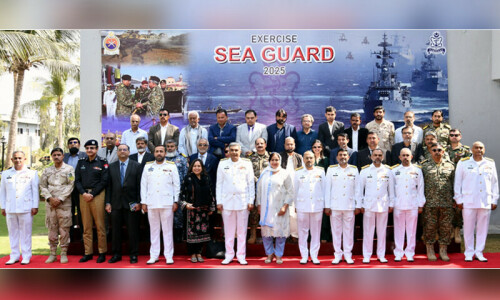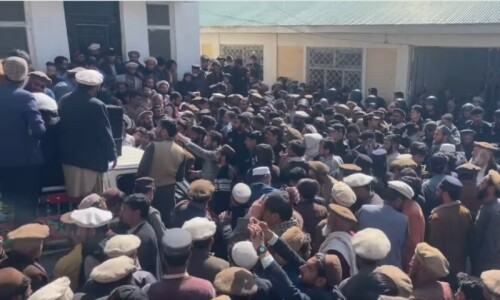WASHINGTON: US special envoy for Afghanistan Zalmay Khalilzad said on Friday that Pakistan had released Taliban leader Mullah Baradar at his request to help expedite the Afghan peace talks.
Khalilzad, who returned this week from almost a month-long peace mission to South Asia and the Middle East, said that he had discussed conditions for the withdrawal of US forces from Afghanistan with the Taliban, but there had been no agreement on this issue yet.
Speaking at the US Institute of Peace in Washington, America’s chief negotiator for Afghanistan acknowledged that the US and the Taliban had reached a framework agreement in Doha last month, but more talks were needed for reaching a conclusion.
Responding to a question about Pakistan’s role in facilitating the US-Taliban talks, he said that Islamabad had played a constructive role and released Mullah Baradar “at my request”.
Khalilzad said that he requested Baradar’s release because he believed the senior Taliban leader could also play a constructive role in the Afghan peace initiative.
Appreciating the role Islamabad was playing in promoting peace talks, Khalilzad said, “Pakistan is an important country and we want better relations with Pakistan.”
He also repeated his earlier warning that it would take more than one meeting to end a 40-year-old war in Afghanistan.
The US diplomat said that previous governments in Afghanistan, whether led by the Taliban or others, had failed because they had tried to impose their views.
The difference he witnessed in Doha was the realisation that this approach would not work, he said, adding that all sides, including the Taliban, were now willing to accommodate each other.
Pakistan too has said that last month’s talks between the United States and the Taliban were a “major diplomatic victory” for all sides.
Published in Dawn, February 9th, 2019

















































